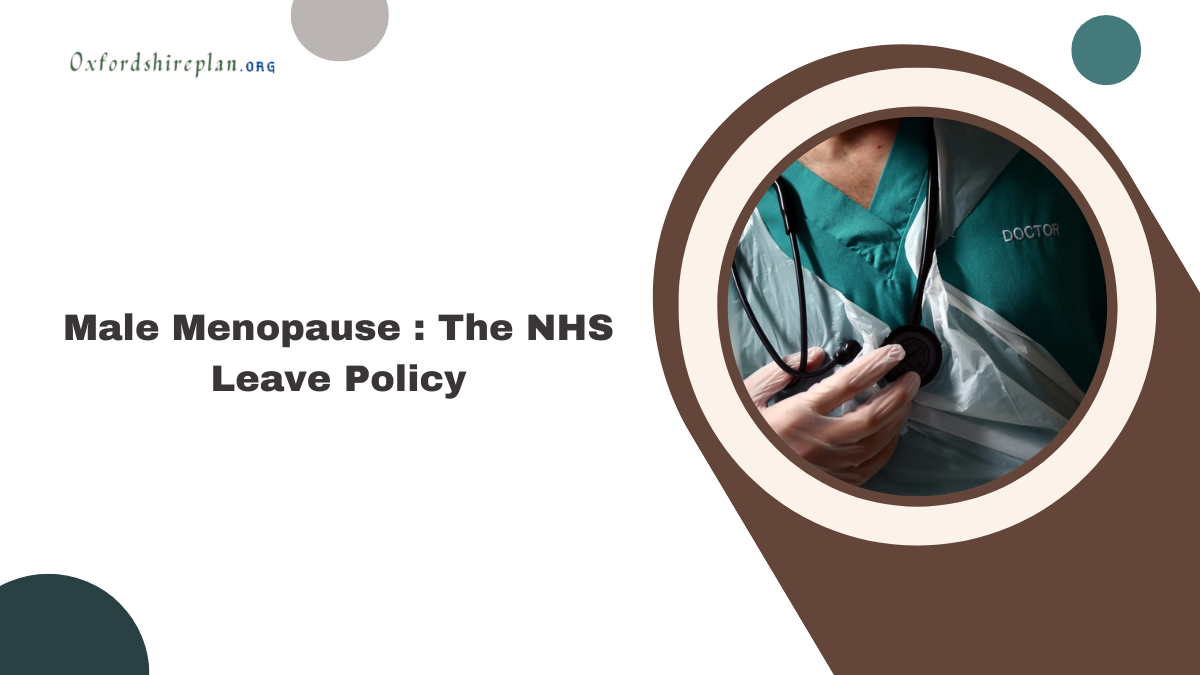Male menopause, or andropause, is a term used to describe a collection of symptoms that some man experience as they age, typically starting in their early 40s to mid-50s. Unlike female menopause, which involves a rapid decline in estrogen levels, male menopause is characterised by a more gradual decrease in testosterone levels. Symptoms can include fatigue, depression, weight gain, irritability, reduced libido, and cognitive difficulties.
Contents
Is There Such a Thing as a “Male Menopause”?
yes, “male menopause” is often used to describe a phenomenon known as andropause. While not as widely recognized or as well recognized as female menopause, andropause refers to a set of symptoms associated with a gradual decline in testosterone levels in aging males here’s a closer look at what andropause entitles:
Understanding “male menopause”
What is Andropause?
Andropause is characterized by a gradual decrease in testosterone levels in men, usually starting in their late 40s to early 50s. Unlike female menopause, which is marked by a sudden and sharp drop in hormones, andropause involves a more gradual decline. This can lead to a range of symptoms, although not all men will experience this in their late 40s.
Symptoms of Andropause?
The symptoms of andropause can vary widely, but common ones include:
- Fatigue: A noticeable drop in energy levels.
- Mood Changes: Increased irritability, anxiety, or depression.
- Cognitive Issues: Difficulty concentrating or memory problems.
- Sexual Dysfunction: Reduced libido, erectile dysfunction, or decreased sexual satisfaction.
- Physical Changes: Weight gain, reduced muscle mass, and decreased bone density
Causes and diagnoses
Andropause is primarily linked to declining testosterone levels, but other factors such as lifestyle, stress, and underlying health conditions can also play a role. Diagnosis typically involves assessing symptoms and measuring testosterone levels through blood tests. It’s important to distinguish andropause from other conditions that might cause similar symptoms, such as thyroid disorders or depression.
Treatment and management
- Lifestyle Changes: Improving diet, exercise, and sleep can help manage symptoms and recovery.
- Hormone Replacement Therapy (HRT): Testosterone replacement therapy may be considered in cases where testosterone levels are significantly low and symptoms are severe however, this therapy is quite expensive.
- Prescription medications: medications could help with specific symptoms like depression, and trouble sleeping.
NHS male menopause leave, Is There any need for a manopause leave policy?
Yes, there is a need for menopause leave for men. The concept of NHS male menopause leave specifically tailored for men experiencing andropause is gaining traction. As awareness grows, the NHS is beginning to consider policies that address this need. Here are some considerations for implementing a leave policy related to these issues:
- Health and Well-being: after a certain age, people may experience many health issues, Taking proper care of their health could benefits like flexibility at work, taking proper rest, and taking time off for accommodation for health reasons, regardless of gender may help these needs
- Gender Inclusivity: A special policy that addresses “manopause” leave could especially be helpful in considering different health issues that affect all men. This effort will make the workspace a better environment for employees
- Precedents and Policies: Some companies already have policies that include sick leave, personal leave, or mental health days, which can cover a range of conditions, including those that might be associated with aging or other life stages or especially leaves like manopause leave.
- Stigma and Support: making a support system or Having a policy that recognises the health challenges associated with ageing will encourage employees to seek the support they need without fear of discrimination or judgment.
- Flexibility and Coverage: Instead of a specific “manopause” leave, a more flexible approach could be offering general health and wellness leave or accommodations that cover various personal and health-related issues.
Conclusion
Specific NHS Male Menopause leave policy might not be necessary, it could be a general leave or given the existing broad leave options, there is value in ensuring that workplace policies support all health-related issues.
Emphasising overall health and wellness, reducing stigma, and maintaining flexibility in leave policies can effectively address the needs of employees experiencing health challenges related to ageing and help them recover mentally and physically by listed treatment. These treatments will improve symptoms and generally make a person healthier.
FAQs
- At what age does Manopause occur?
The experts believe menopause syndrome can occur at any age; however, it is mostly found in males at the age of end 40s to mid-50s.
- What is the best treatment for andropause?
Lifestyle modifications include eating healthy foods, exercising regularly, and getting enough sleep. Hormone Replacement Therapy involves taking synthetic hormones to replace those lost due to low testosterone levels. Although (HRT) has the most success rate among different treatment
- What are the major symptoms of male menopause?
The main symptoms of andropause include sexual dysfunction, mood changes, physical changes, and fatigue. These symptoms may be the same for other health issues. For better clarification, consult a doctor.
Click Here To Read More

I am a dedicated lifestyle and fashion enthusiast, always looking for the latest trends and timeless styles. With a flair for creativity and a passion for self-expression, I provide fresh insights and tips on elevating everyday living and personal style.
















